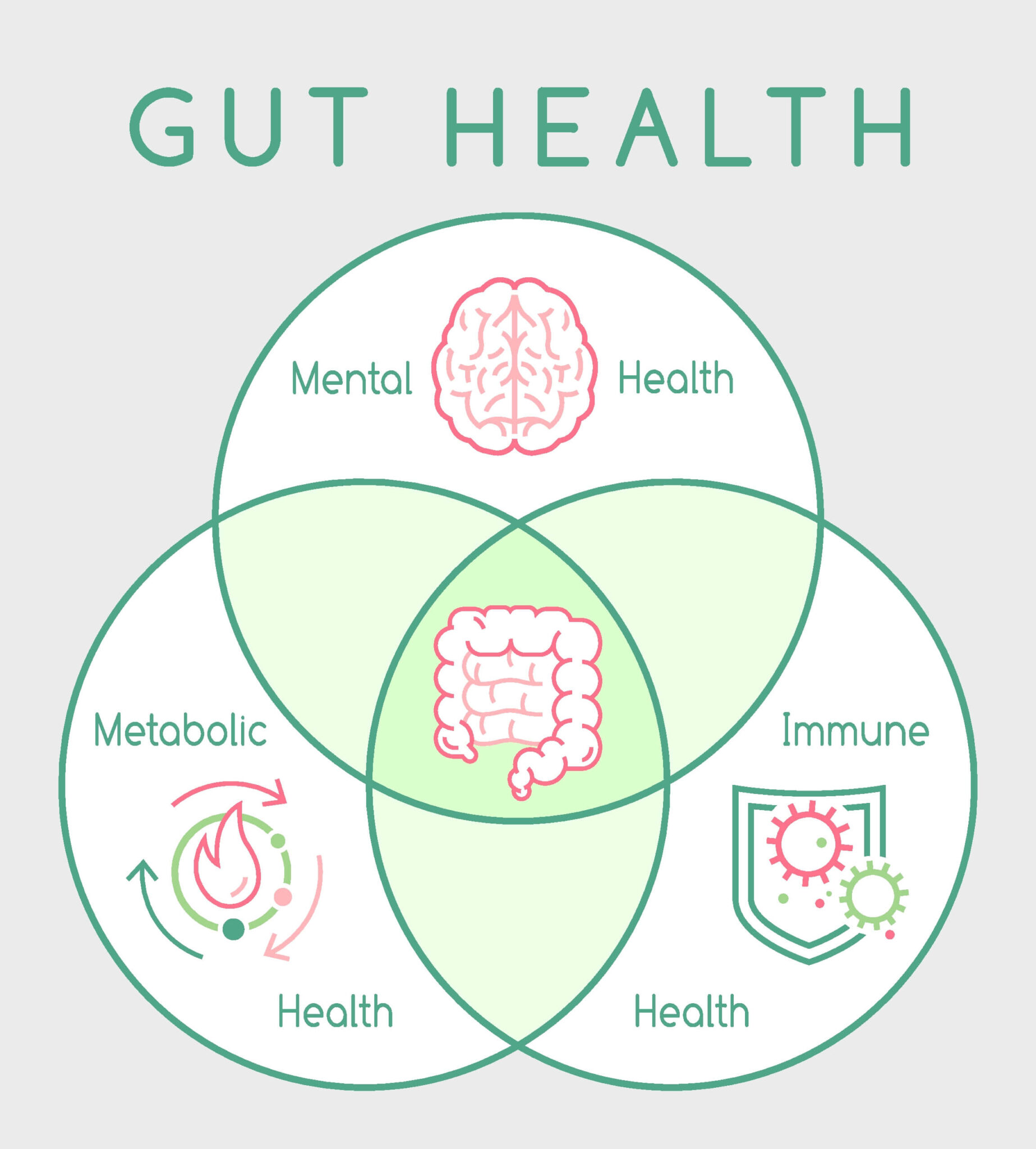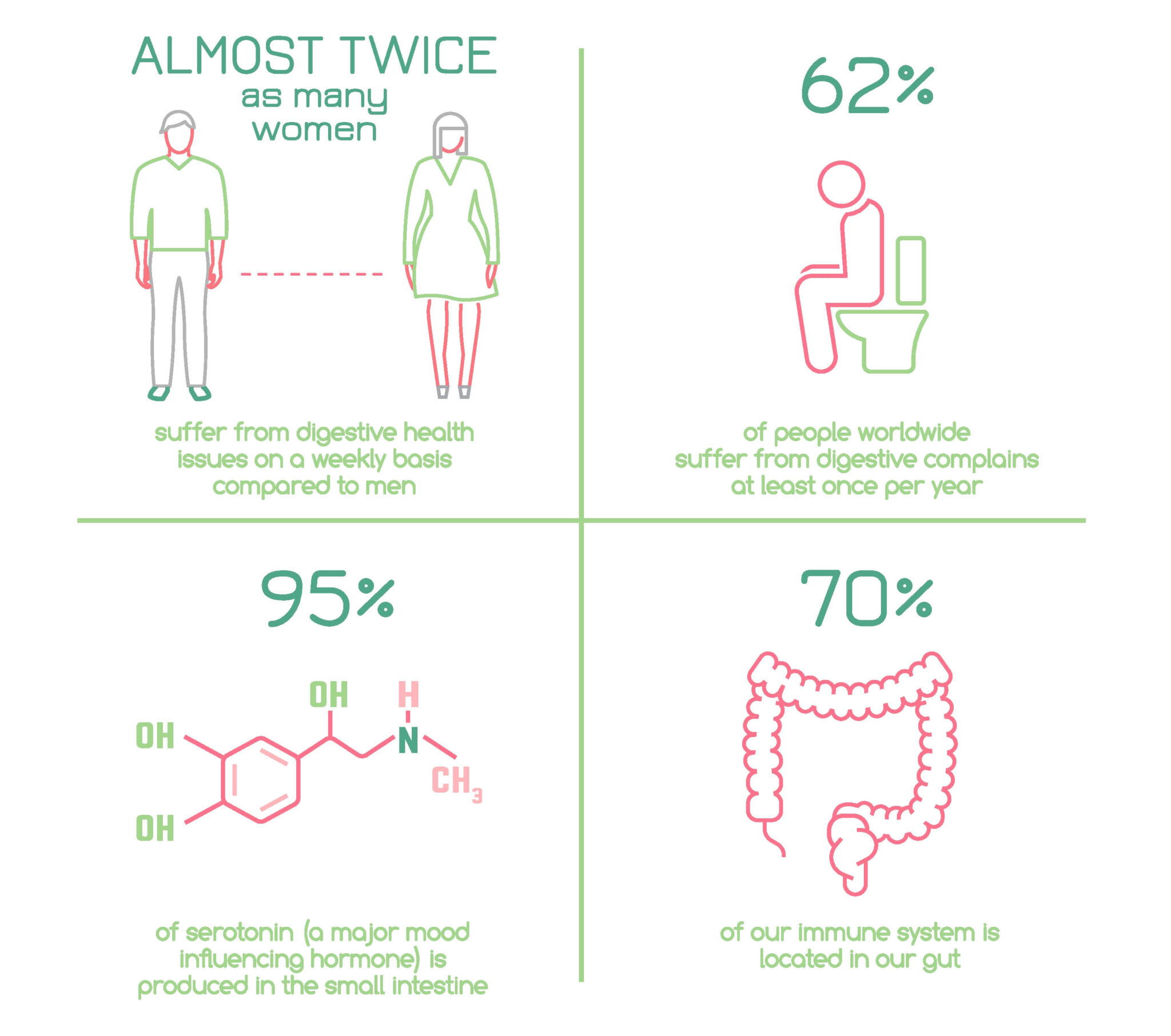Unlocking the Secrets of Gut Health and Weight Loss
Let’s dive into an exciting topic that’s close to our hearts (and stomachs!) – gut health. We often hear about diets, weight loss, and brain health, but how often do we connect these with our gut health? Well, recent research has shown that this connection is not just important, it’s crucial. And guess what? Our Benehealth practitioners are here to guide you on this journey.
The Connection Between Your Brain, Gut, and Weight Loss
In simple terms, our gut health is more influential than we ever imagined, especially for those dealing with obesity. A study focusing on intermittent energy restriction (IER) – a fancy term for a diet where you alternate between normal eating and restricted eating – has shed new light on this. It turns out, this approach does more than just help you lose weight; it significantly impacts your brain and gut, creating a healthier you.


How the Study Worked: Let’s break down the research in easy-to-understand steps:
- The Participants: 25 individuals with obesity in Asia.
- The Diet: It was split into three phases. First, they ate normally for 4 days. Then, they followed a special diet with fewer calories every other day for 32 days. Finally, they ended with 30 days of intermittent fasting and a personalized diet plan to optimize gut health.
- The Tests: Researchers kept a close eye on the participants, using blood and stool samples, and even brain scans to see what was happening inside their bodies.
What They Found: After following this special diet, participants not only lost weight (an average of 7.6 kg/16.76 pounds) but even more importantly, the participants also experienced improvements in several health markers, such as body fat, blood pressure, and blood sugar levels. But here’s the fascinating part: the diet changed how certain parts of their brains – the parts that control eating habits – worked. Moreover, their gut health improved significantly, with a more diverse range of helpful gut bacteria.
The Fascinating Influence of Our Gut
This improvement in gut health is not just a minor change; it’s a crucial shift that can redefine your health journey. Here’s why:
- Gut Microbiome and Your Brain: The gut microbiome (all the tiny organisms living in your gut) is often referred to as our ‘second brain’ because of the gut-brain axis, a communication highway that links your gut and brain both physically and biochemically. This connection means that the state of your gut can directly influence your mood, thoughts, and even your behavior. The diverse range of helpful gut bacteria nurtured by a balanced diet can produce substances like neurotransmitters, including serotonin and dopamine, which play a pivotal role in regulating your mood and emotions.
- Immune System Booster: A significant portion of your immune system is housed in your gut. A healthy and diverse gut microbiome can strengthen your immune system, making you more resilient against infections and illnesses. On the flip side, an imbalance in your gut bacteria can lead to an overactive immune response, which can trigger inflammation and potentially lead to autoimmune diseases.
- Gut Health for Heart Health: Emerging research suggests that a healthy gut microbiome can promote heart health by influencing factors like blood pressure, cholesterol levels, and even the health of your blood vessels. Certain gut bacteria have been found to produce molecules that can lower artery-hardening cholesterol.
- Digestive Harmony: A balanced gut microbiome ensures the smooth functioning of your digestive system, protecting you from issues like constipation, diarrhea, and bloating. It also plays a role in protecting your gut lining, preventing harmful substances from “leaking” into your body and triggering inflammation.
- Mental Well-being: The gut-brain axis means that your gut health can impact your mental health. Imbalances in gut bacteria have been linked with a variety of mental health issues, including anxiety and depression.
By nurturing a diverse and healthy gut microbiome through diet, like the intermittent energy restriction (IER) mentioned in the study, we don’t just influence our weight or how our brain controls eating habits. We open a doorway to holistic health, impacting everything from our immune response and metabolism to our mood and mental clarity.
Why It Matters for Losing Weight
This study is like a puzzle revealing how closely our brain, gut, and overall health are linked. The changes in the gut were connected to how the brain functioned, especially in areas related to eating behavior. It shows us that improving gut health can be a powerful tool in managing weight and enhancing overall well-being.
Metabolism and Weight Management: Your gut bacteria can influence how your body metabolizes food, how fat is stored, and how you maintain balance regarding your hunger, fullness, and energy usage. A diverse microbiome helps in breaking down fiber into short-chain fatty acids, which are crucial for gut health and may help prevent weight gain.
How do diet medications effect gut health?
Diet medications, while effective for weight loss in many cases, can have a complex relationship with gut health. It’s essential to understand how these medications work and their potential impact on the gut microbiome. Let’s explore some commonly prescribed diet medications, such as Phentermine and Semaglutide, and their effects on gut health.
- Phentermine:
- Mechanism: Phentermine is a stimulant that suppresses appetite by affecting the central nervous system. It’s similar toan amphetamine and is typically prescribed for short-term use.
- Impact on Gut Health: Phentermine mainly targets the brain to suppress appetite, but it can also indirectly influence gut health. This is because altering appetite and eating habits can change the gut microbiome. Specifically, if food intake is reduced or the types of food consumed change without a personalized nutrition plan, the balance of gut bacteria can be affected. Additionally, as a stimulant, Phentermine may cause digestive issues such as constipation or diarrhea, which can further disrupt the gut flora.
- Semaglutide:
- Mechanism: Semaglutide works by mimicking a hormone that targets areas of the brain involved in regulating appetite and food intake. It’s often used in managing type 2 diabetes and for weight loss.
- Impact on Gut Health: Semaglutide can slow down gastric emptying, meaning food passes more slowly through the stomach. This can affect the gut microbiome by altering the environment in which gut bacteria thrive. While this can have benefits like increased satiety, it might also lead to gastrointestinal symptoms such as nausea, constipation, or diarrhea, which can disturb the gut microbiome balance.There are numerous reasons to avoid semaglutide “Ozempic” – read more here…
- Other Popular Pharmaceuticals:
- Orlistat: Orlistat works by inhibiting the enzyme that breaks down fats in your diet. This undigested fat is not absorbed and is excreted from the body. While effective for weight loss, it can lead to gastrointestinal side effects and may interfere with the absorption of fat-soluble vitamins, and potentially affecting the gut microbiome.
- Liraglutide: Similar toSemaglutide, Liraglutide affects appetite and food intake. It can also slow gastric emptying and may lead to gastrointestinal symptoms, impacting the gut microbiome.

Considerations:
- Alteration of Gut Flora: Any change in diet or introduction of medications can alter the gut flora. While some bacteria may thrive on reduced food intake or changes in the gut environment, others may diminish, leading to a less diverse microbiome.
- Gastrointestinal Side Effects: Many weight-loss medications can lead to gastrointestinal side effects such as nausea, vomiting, constipation, or diarrhea. These symptoms can disrupt the normal functioning of the gut and alter the microbiome balance.
- Long-Term Implications: The long-term implications of these medications on gut health are still being researched. It’s crucial to use these medications under the guidance of a healthcare professional and consider comprehensive strategies that include diet, exercise, and lifestyle changes for sustainable weight management.
It’s important to approach weight loss and the use of diet medications with a holistic perspective, understanding that gut health plays a crucial role in overall well-being. Consulting with healthcare providers, including specialists in gut health like those at Benehealth, can ensure that any weight-loss strategy, including the use of medications, is balanced and supports overall health, including that of the gut microbiome.
Benehealth: Your Partner in Gut Health and Healthy Weight
At Benehealth, our practitioners are not just experts; they are passionate about gut health. They understand the complex relationship between your diet, your gut microbiome, healthy weight, and your brain. They’re here to guide you through personalized approaches to enhance your gut health, which in turn can lead to better overall health.
In the end, this research isn’t just about losing weight; it’s about gaining a deeper understanding of our bodies. By focusing on our gut health, we can unlock a world of benefits. And with Benehealth, you’re not alone on this journey. Together, let’s embrace a healthier lifestyle, starting with our gut health!
Ready to start? Contact a Benehealth practitioner today and take the first step towards a healthier you!Join our Healthy Weight program and change your life.

